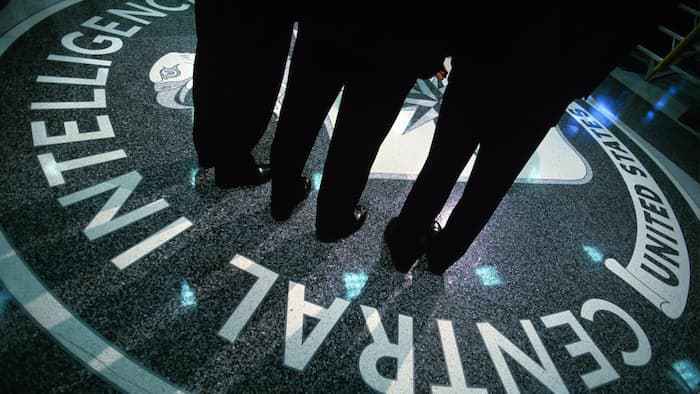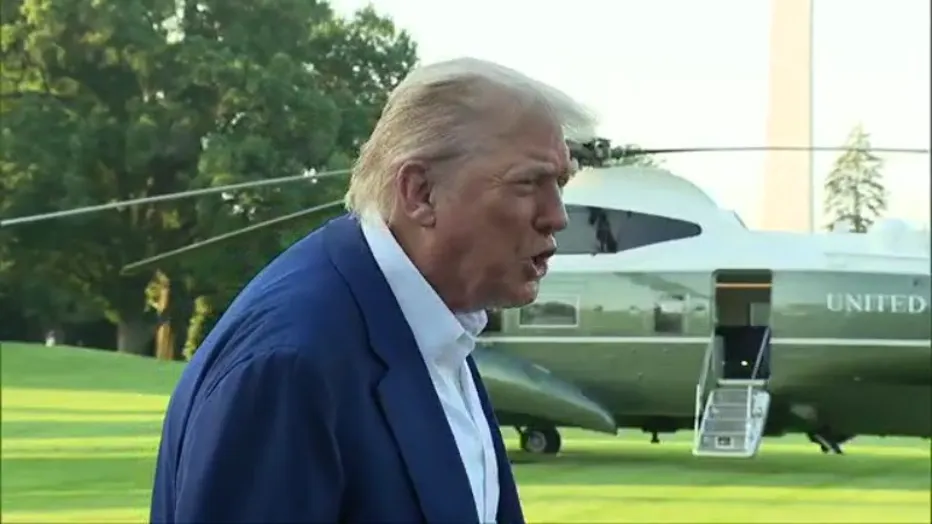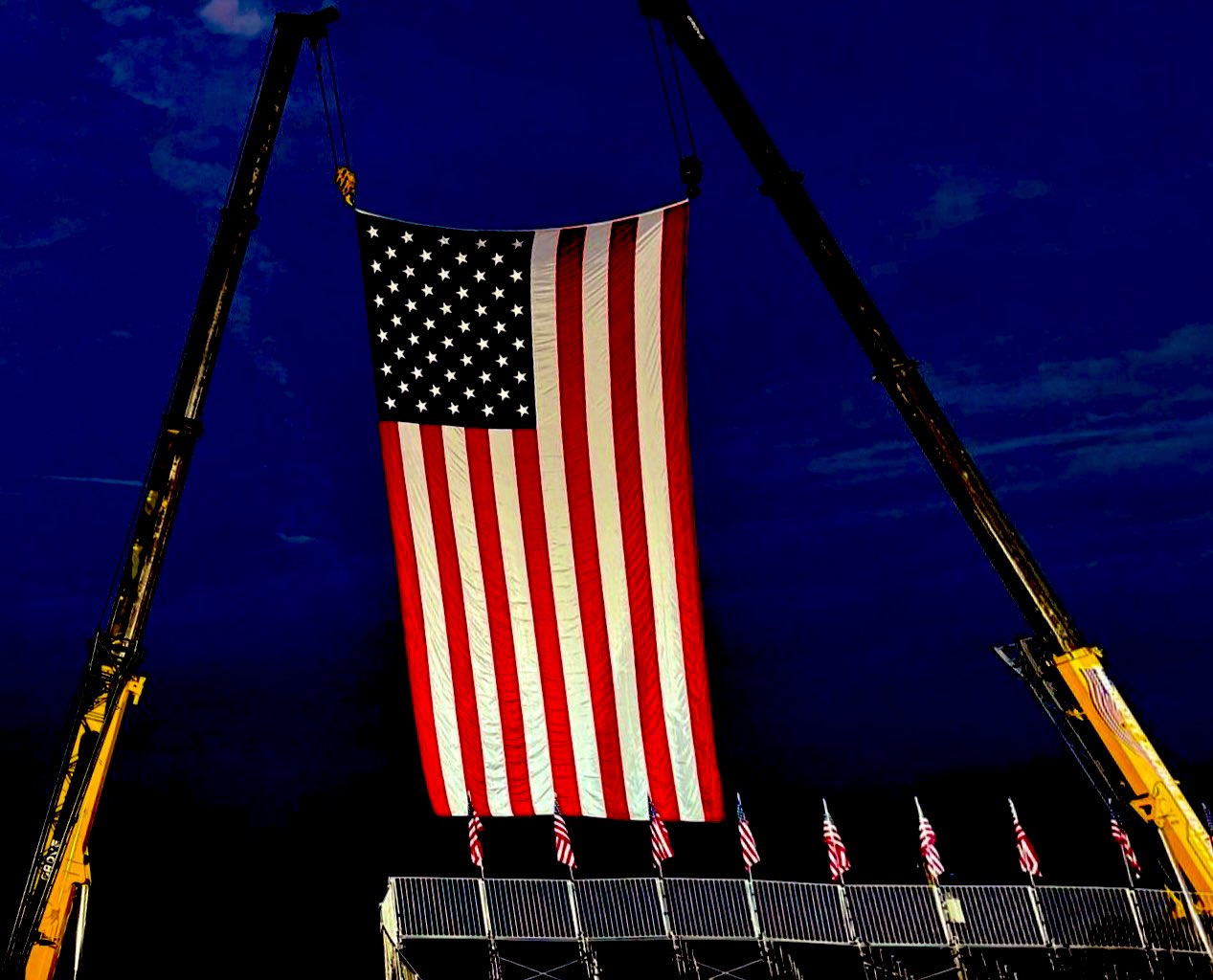U.S.
Ex-CIA Goes Rouge; Accused Of Helping Chinese Assassinate US Informants Arrested At JFK
Published
7 years agoon

(Via Zerohedge)
A former CIA officer suspected of helping China identify the US spy agency’s informants was arrested at JFK International Airport on Monday on charges of unlawful retention of national defense information, according to the Department of Justice.
Many of the agency’s informants were killed in a “systematic dismantling of the C.I.A.’s spy network in China starting in 2010,” according to the New York Times, which notes it was one of the American government’s “worst intelligence failures in recent years.”
The arrest of the former agent, Jerry Chun Shing Lee, 53, capped an intense F.B.I. investigation that began around 2012 after the C.I.A. began losing its informants in China. Mr. Lee was at the center of a mole hunt in which some intelligence officials believed that he had betrayed the United States but others thought that the Chinese government had hacked the C.I.A.’s covert communications used to talk to foreign sources of information. -NYT
“Jerry Chun Shing Lee, aka “Zhen Cheng Li”, 53 – a U.S. Citizen currently living in Hong Kong, began working for the CIA as a case officer in 1994, where he would spend the next 13 years with a Top Secret clearance and signing “numerous non-disclosure agreements,” according to a DOJ press release.
According to court documents, in August 2012, Lee and his family left Hong Kong to return to the United States to live in northern Virginia. While traveling back to the United States, Lee and his family had hotel stays in Hawaii and Virginia. During each of the hotel stays, FBI agents conducted court-authorized searches of Lee’s room and luggage, and found that Lee was in unauthorized possession of materials relating to the national defense.
Specifically, agents found two small books containing handwritten notes that contained classified information, including but not limited to, true names and phone numbers of assets and covert CIA employees, operational notes from asset meetings, operational meeting locations and locations of covert facilities.
Lee appeared in an New York courtroom Tuesday afternoon where he was ordered held without bail. He faces a maximum penalty of 10 years in prison if convicted. The case is being prosecuted by the U.S. Attorney’s Office for the Eastern District of Virginia.
Lee, 53, served in the U.S. Army from 1982 through 1986 and worked for the CIA between 1994 and 2007 according to an affidavit filed by an FBI agent.
The FBI agent wrote that Lee and his family left Hong Kong in August 2012 to travel to northern Virginia. Along the way, they stayed in hotels where the FBI found the books.
The small books were discovered inside Lee’s luggage, sealed in a small clear plastic travel pack.
The handwritten information inside ranged in terms of classification, but the agent said at least one page contained top secret information, “the disclosure of which could cause exceptionally grave damage to the national security of the United States.” -Reuters
The FBI agent’s affidavit also noted that classified cables written by Lee while he was a case officer describing his interactions with CIA informants corroborated what was found in the two books.
Lee was interviewed five times by the FBI according to Reuters, never disclosing that he had the books. He also met with former CIA colleagues around that time without returning the classified materials, said the Justice Department.
Over a dozen CIA informants were imprisoned or killed by the Chinese government, a serious setback for the agency, as discussed here first last May:
The Chinese government systematically dismantled C.I.A. spying operations in the country starting in 2010, killing or imprisoning more than a dozen sources over two years and crippling intelligence gathering there for years afterward.
Current and former American officials described the intelligence breach as one of the worst in decades. It set off a scramble in Washington’s intelligence and law enforcement agencies to contain the fallout, but investigators were bitterly divided over the cause. Some were convinced that a mole within the C.I.A. had betrayed the United States. Others believed that the Chinese had hacked the covert system the C.I.A. used to communicate with its foreign sources. Years later, that debate remains unresolved.
But there was no disagreement about the damage. From the final weeks of 2010 through the end of 2012, according to former American officials, the Chinese killed at least a dozen of the C.I.A.’s sources. According to three of the officials, one was shot in front of his colleagues in the courtyard of a government building — a message to others who might have been working for the C.I.A. -NYT
By the end of 2011, senior CIA officials realized they had a problem; their assets in China were disappearing. The FBI and CIA opened a joint investigation in response, run by top counterintelligence officials out of an office in Northern Virginia – code named “Honey Badger.”
As more and more sources vanished, the operation took on increased urgency. Nearly every employee at the American Embassy was scrutinized, no matter how high ranking. Some investigators believed the Chinese had cracked the encrypted method that the C.I.A. used to communicate with its assets. Others suspected a traitor in the C.I.A., a theory that agency officials were at first reluctant to embrace — and that some in both agencies still do not believe. -NYT
Politics
President Donald J. Trump on Israel and Iran: “Two Countries Don’t Know What the F*** They’re Doing.”
Published
6 days agoon
June 24, 2025
Trump’s Blunt Rebuke of Israel and Iran: A Strategic Display of Control Amid Ceasefire Chaos
On June 24, 2025, President Donald J. Trump delivered a characteristically unfiltered assessment of the faltering ceasefire between Israel and Iran, declaring, “Two countries don’t know what the f*** they’re doing.” The comment, made to reporters as he departed for a NATO summit, underscored his frustration with both nations for violating a fragile truce brokered just a day earlier on June 23, 2025. Far from a mere outburst, Trump’s statement and the actions surrounding it reveal a calculated approach to reasserting U.S. influence over a volatile Middle East conflict, showcasing his ability to navigate and control a complex geopolitical crisis.
The Context: A Ceasefire Undermined
The ceasefire, intended to de-escalate tensions between Israel and Iran, was a significant diplomatic achievement for the Trump administration, signaling a potential pause in a conflict that has long threatened regional stability. However, within hours, Iran launched a strike that killed several people, prompting Israel to respond with a “symbolic attack” on the same day. These violations unraveled the truce, drawing global attention and risking further escalation, particularly given Iran’s nuclear ambitions and Israel’s military resolve.
Trump’s blunt remark came in response to this rapid deterioration. He expressed particular displeasure with Israel, noting that it “unloaded” on Iran shortly after the agreement, undermining the deal he had championed. “I’m really unhappy with Israel,” he told reporters, a rare public rebuke of a key U.S. ally. Yet, his criticism extended to both parties, reflecting his view that their tit-for-tat actions lacked strategic clarity and jeopardized a cycle of violence.
Why Trump Said It: A Strategic Calculus
Trump’s choice of words was no accident. His provocative language served multiple purposes, each reinforcing his ability to steer the situation:
- Reasserting U.S. Authority: By publicly chastising both Israel and Iran, Trump signaled that the United States, under his leadership, remains the dominant force in Middle East diplomacy. His frustration highlighted the U.S.’s role as the ceasefire’s architect and underscored that violations would not be tolerated without consequences. This move reminded both nations of their reliance on U.S. support—militarily for Israel and diplomatically for Iran in avoiding broader sanctions or isolation.
- Pressuring for Compliance: Trump’s bluntness was a calculated pressure tactic. By calling out Israel’s “unloading” and Iran’s initial strike, he aimed to shame both into reconsidering further violations. His urgent appeal to Israel to avoid additional strikes against Iran, labeling such actions a “serious violation” of the ceasefire, was a direct warning to an ally accustomed to significant autonomy. Similarly, his criticism of Iran’s actions reinforced his earlier stance of giving them “chance after chance” to negotiate, signaling that his patience was not infinite.
- Shaping the Narrative: Trump’s colorful language ensured his message dominated global headlines, keeping the focus on his administration’s efforts to broker peace rather than the ceasefire’s collapse. By framing Israel and Iran as directionless, he positioned himself as the clear-headed leader seeking order amid chaos. This narrative was particularly critical as he headed to the NATO summit, where allies would scrutinize his handling of the crisis.
- Balancing Domestic and International Audiences: Domestically, Trump’s tough talk resonated with his base, who value his no-nonsense style. Internationally, it sent a message to adversaries like Iran that he was not afraid to confront allies like Israel, challenging perceptions of unchecked U.S. support for Israeli actions. This balancing act strengthened his leverage in future negotiations.
Trump’s Control: Actions Speak Louder Than Words
Beyond his rhetoric, Trump demonstrated control through decisive actions that underscored his influence over the situation:
- Direct Diplomacy: Prior to the ceasefire, Trump had privately and publicly urged Israel to refrain from striking Iran, emphasizing his desire for a deal to prevent escalation. Despite Israeli Prime Minister Benjamin Netanyahu’s decision to act, Trump’s ability to extract a ceasefire agreement in the first place showcased his diplomatic clout.
- Public Rebuke as Leverage: By openly criticizing Israel, a move described as a “rare public rebuke of an ally,” Trump shifted the dynamic of U.S.-Israel relations. This signaled to Israel that U.S. support, while steadfast, comes with expectations of compliance with American-led initiatives. It also positioned Trump as a neutral arbiter, increasing his credibility with other regional players.
- Pushing for De-escalation: Trump’s comments were paired with a clear call for negotiations to resume, particularly with Iran, to address its nuclear program and prevent further strikes. His insistence that both nations “don’t know what they’re doing” was a strategic jab to nudge them toward the negotiating table, where the U.S. could dictate terms.
- Navigating NATO and Global Opinion: Departing for the NATO summit, Trump used the crisis to project strength to allies wary of U.S. foreign policy under his second term. His ability to manage the ceasefire’s fallout while engaging with global leaders demonstrated his multitasking prowess and commitment to U.S. leadership on the world stage.
The Bigger Picture: A Pattern of Control
Trump’s handling of the Israel-Iran ceasefire breach aligns with his broader foreign policy approach: bold rhetoric, strategic pressure, and a knack for keeping adversaries and allies alike off balance. His critics, such as those on X who argue he has ceded too much control to Israel, overlook the nuance of his strategy. While Israel’s actions may have tested his influence, Trump’s public frustration and diplomatic maneuvering suggest he is far from a bystander. Instead, he is actively shaping the conflict’s trajectory, using the ceasefire’s collapse as an opportunity to reinforce U.S. dominance.
Conclusion
President Trump’s June 24, 2025, statement that Israel and Iran “don’t know what the f*** they’re doing” was more than a soundbite—it was a calculated move to reassert control over a spiraling Middle East crisis. By leveraging blunt rhetoric, public rebukes, and diplomatic pressure, Trump demonstrated his ability to steer the actions of both allies and adversaries. While the ceasefire’s breach exposed the region’s volatility, Trump’s response showcased his strategic acumen, ensuring the U.S. remains the central player in the quest for stability. As he navigates this crisis, his blend of bravado and pragmatism continues to define his approach, proving that even in chaos, he knows exactly what he’s doing.

Donald Trump’s political journey over the last eight years has been a vivid illustration of modern populism, defying conventional political odds. Starting with his 2016 presidential campaign, Trump, a real estate mogul and reality TV star, harnessed populist sentiments to propel his candidacy. His message resonated with many Americans feeling left behind by globalization and economic shifts, promising to restore jobs, combat what he described as unfair trade deals, and prioritize American interests over international cooperation. This populist wave was marked by his direct communication style, bypassing traditional media to connect with voters through rallies and social media, where he spoke of “draining the swamp” in Washington, suggesting a deep-seated distrust in the political establishment.
The struggle of Trump supporters has mirrored this populist movement, characterized by a sense of alienation from what they perceive as a detached political and cultural elite. This group, often labeled pejoratively by some in the mainstream, found in Trump a voice for their frustrations with immigration policies, economic policies favoring global trade over local jobs, and cultural shifts they felt were imposed without their consent. The Trump family, from Melania’s fashion choices to Ivanka’s political involvement, became symbols of this populist resistance against the perceived elitism of politics. The criticism they faced only deepened the solidarity among Trump’s supporters, who saw in his family a reflection of their own battles against the establishment.
The alt-media ecosystem was instrumental in this populist surge, serving as both a battleground and a bastion. Outlets like Breitbart and Infowars, and later platforms like Parler and Truth Social, became the echo chambers where Trump’s narrative of being a victim of political witch hunts and media bias was amplified. These platforms didn’t just report news; they crafted a narrative where Trump’s every move, from policy to personal tweets, was framed as part of a larger fight against a corrupt system. This interaction between Trump, his supporters, and the alt-media has redefined political discourse, showcasing how populism can harness media, both traditional and digital, to challenge and reshape political norms. Trump’s journey has thus not only defied odds but has also redefined what political success looks like in an era where populism can sway elections and influence policy discussions at the highest levels.
Politics
President Trump Returns to Butler to FIGHT for America First
Published
9 months agoon
October 5, 2024
Trump’s Return to Butler, PA: A Symbol of Tenacity and Defiance
Today, former President Donald Trump makes a symbolically charged return to Butler, Pennsylvania, the site where his resilience was tested in an unprecedented manner. This visit, on October 5, 2024, is not just another campaign stop but a poignant reminder of his enduring “FIGHT FIGHT FIGHT” mantra, which has become emblematic of his political persona.
10/4 | BUTLER, PENNSYLVANIA… pic.twitter.com/YradtyIbMR
— Dan Scavino Jr.🇺🇸🦅 (@DanScavino) October 5, 2024
A Historical Backdrop
On July 13, 2024, Butler was thrust into the national spotlight when an assassination attempt was made on Trump during a rally. Surviving with a mere graze to his ear, Trump’s immediate response was to raise his fist, a moment captured in what has now become an iconic image, symbolizing his defiance against adversity. This incident didn’t just scar him physically but also galvanized his supporters, turning Butler into a shrine of sorts for Trump’s resilience.
The Symbolism of the Return
Trump’s decision to return to Butler is laden with symbolism. Here’s why this visit resonates deeply with his campaign ethos:
- Defiance in the Face of Danger: Returning to the site where his life was threatened underscores Trump’s narrative of not backing down. It’s a physical manifestation of his “FIGHT FIGHT FIGHT” ethos, showcasing his refusal to be intimidated by violence or political opposition.
- Political Theatre and Momentum: This rally serves as a masterstroke in political theatre, aiming to convert the attempt on his life into a rallying cry for his supporters. It’s an attempt to reignite the fervor seen in the immediate aftermath of the incident, where his campaign saw a surge in support, portraying him as a fighter against all odds.
- Uniting the Base: By revisiting Butler, Trump not only honors the victims of the incident but also uses the location to unify his base. The rally is expected to be a blend of remembrance and a call to action, emphasizing themes of perseverance, security, and defiance against the establishment’s perceived failures.
- A Message of Strength: For Trump, every appearance since the assassination attempt has been an opportunity to project strength. Returning to Butler amplifies this message, suggesting that neither personal attacks nor political challenges will deter his campaign or his message.
The Broader Impact
The “FIGHT FIGHT FIGHT” mantra has transcended its initial context, becoming a broader call against what Trump describes as systemic failures, from immigration policies to disaster response, as seen in his critiques of the current administration’s handling of events in North Carolina, echoed in his and his allies’ posts on X.
This return to Butler isn’t just about revisiting the site of a traumatic event; it’s a strategic move to encapsulate his campaign’s spirit in one location, making it a pilgrimage of sorts for his supporters. It represents Trump not just as a politician but as a symbol of resistance and persistence, key themes in his narrative of reclaiming America.
In sum, Trump’s rally in Butler today is more than a campaign event; it’s a testament to his campaign’s core message: a relentless fight against adversaries, be they political opponents, critics, or even those who threaten his life. This event is poised to be a significant moment in the 2024 presidential race, leveraging trauma, resilience, and defiance into political capital.

President Donald J. Trump on Israel and Iran: “Two Countries Don’t Know What the F*** They’re Doing.”

Chad Pelley Lawsuit in Shambles – Free Speech Win Relieves Bailey Symonds, Strips Injunction

Chad Pelley Denied: Free Speech Injunction Hearing to Proceed Friday in Linn County

Chad Pelley’s Lawsuit: Free Speech Under Siege in Iowa






